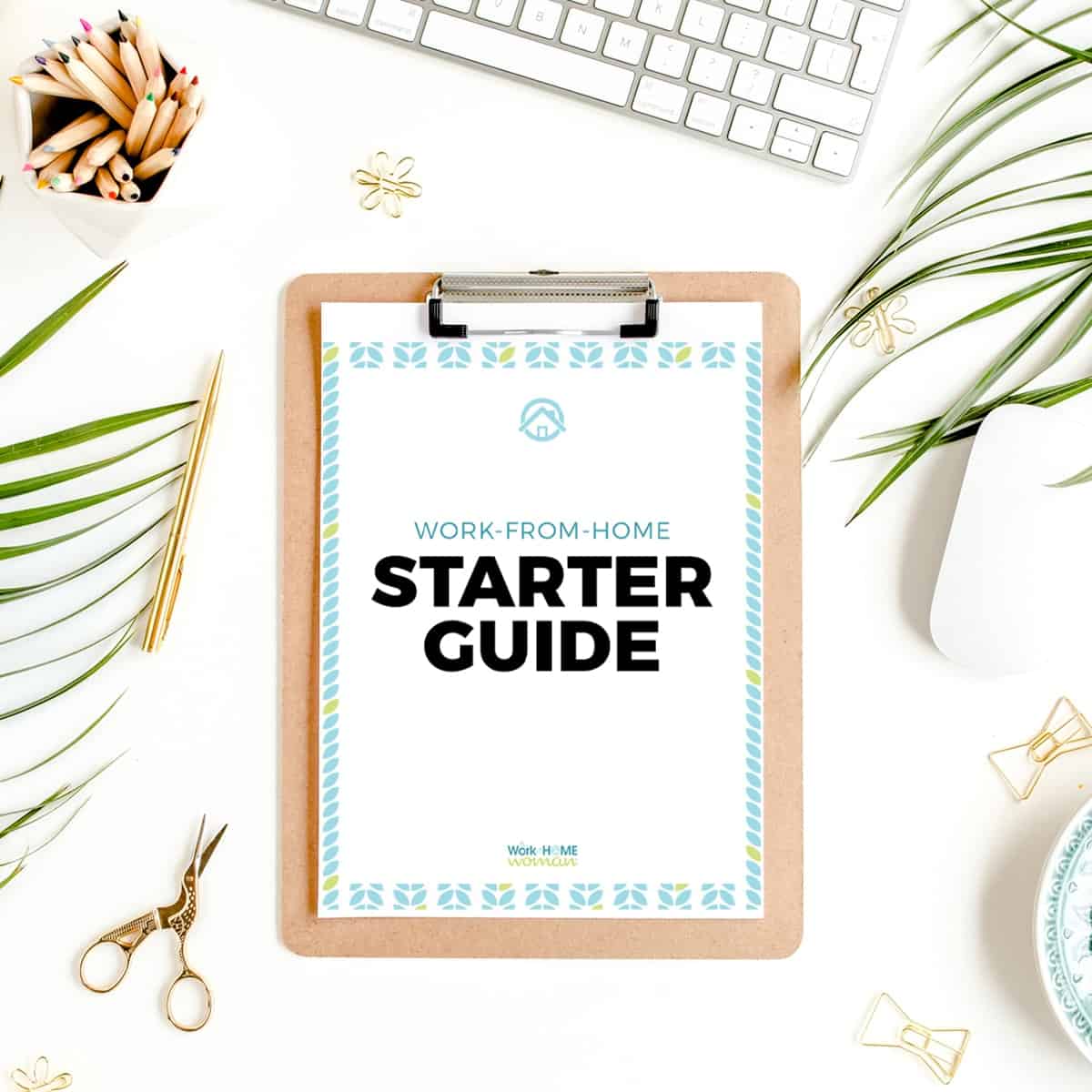One of the most frustrating things for job seekers is when they are searching for jobs, but almost every position requires years of experience. Seriously, how are you supposed to gain experience when employers aren’t willing to take a chance on an entry-level candidate?
If you’re trying to land your first job and don’t have prior work experience, here are 12 genius ways to get a job with no experience.
1. Spin Your Skills
Everyone has some transferable skill or talent to apply to a new job. Perhaps you took a digital design class in high school or helped tutor other kids in math; these are skills that you can highlight on a job application or resume. Think about organizations you belong to, extracurricular activities, and volunteer work that you’ve done.

For example, an individual who has participated in Girl Scouts probably has experience selling cookies, setting and achieving goals, and providing customer service, these are experiences and skills you can pull from and highlight.
Another example is an individual who has started an Instagram account and grown their following to a substantial number. Maybe this person has had some posts go viral. This person has examples of their photography, writing, editing, and marketing skills.
At this stage, it can be helpful to write a list of specialized classes you have taken, extracurricular activities, volunteer work, and any hobbies you enjoy. From there, break it down into the skills and experience you’ve gained from these activities and how they relate to the entry-level position you want.
2. Seek Out Internships or Apprenticeships
Internships are a great way to gain experience and explore career fields you may be interested in. While many internships are for individuals pursuing a degree, there are also programs for high school students, parents returning to the workforce, and individuals interested in specific career paths!
With an internship, you’ll apply to the program, and if accepted, you’ll work part-time (usually 10 hours per week) for an extended period (10-16 weeks). Some internships offer a small stipend, but most are unpaid. But you’ll get hands-on experience and credentials that you can add to a job application or resume. If you prove yourself in the role, your internship could lead to a permanent paid job with the company.
To find internships, check out Chegg, CollegeVine, and Idealist.
3. Focus on Your Soft Skills
Instead of focusing on your lack of prior job experience, focus on the soft skills that make you a great fit for many positions. Traits like good work ethic, motivation to succeed, team-player, outgoing personality, and excellent communication skills are just some of the viable skills employers want in their team members.
To figure out what soft skills you possess, think about compliments you’ve received in the past. Were you named most likely to succeed in high school? Do people always comment on what a hard worker you are? If you’re struggling to come up with a list of soft skills, you can look at this list of 135 desirable soft skills employers want and ask family, friends, and teachers.
4. Volunteer Experience
Volunteering is a great way to give back to the community, but it also helps you develop valuable skill sets, experience, and connections. It’s also an excellent way to test the waters in a career field you may be interested in. Many volunteer organizations will want you to make a short-term commitment, for example, a couple of hours once a week for six weeks.
If you decide to volunteer, keep track of your hours, the dates you volunteered, the organization, who you worked with, and what tasks you completed. At the end of your contract, you’ll have gained new skills and experience to put on your resume. Like internships, if you prove to be a valuable asset to the organization, they may extend a permanent job offer.
5. Submit a Spec Assignment
If you’re talented in graphic design, video editing, writing, photography, or the like, you can try submitting a spec assignment to a company you’d like to work for. For instance, if there’s a company hiring a writer, and they’re requesting years of experience that you don’t have, suggest writing a spec assignment for them. By writing them an article for their target niche, you can showcase your knowledge in that area and your writing skills. If your article wows them, you’ll likely end up with a job offer.
Sometimes spec assignments are part of a company’s interview process; other times, spec assignments are part of a contest. For example, on 99designs, freelance graphic designers can submit concepts for design contests and earn good money when their design is chosen. If you’re having trouble getting your foot in the door, try offering up a spec assignment to prove your talent.
6. Network
I’m sure you’ve heard the saying, it’s not what you know, but who you know, and this is especially true for your job search. It’s estimated that 80% of jobs don’t get posted because they’re filled by word of mouth. If you’re not getting in touch with your network about your job search, you’re majorly limiting the number of available jobs to you. Another reason you should add networking to the mix is because people who know you will be more likely to recommend you for a job and give you a chance over someone they don’t know.
To start your networking efforts, create a list of friends, family, teachers, and colleagues. Once you have your list, start reaching out to individuals, let them know about your job search, and ask them if they know of any available positions. It’s best to track who you’ve contacted and the date and jot down any applicable notes. If you need a system to keep everything in order, my Work From Home Career Planner can keep you organized and on track to meet your career goals.
Related content: How to Find Remote Jobs Using the Hidden Job Market
7. Conduct Informational Interviews
Once you’ve exhausted your network, you can reach out to individuals working in the field you want to break into. Informational interviews are a chance for you to ask questions about the occupation and better understand if this is the right career path or company for you.
When conducting an informational interview, you’re not asking for a job; you’re gathering valuable information on the occupation and company you’re interested in. When you reach out to an individual, you’ll want to be respectful of their time, so offer to conduct the interview via phone, email, or Zoom, and make sure you come prepared with questions.
Some questions you may want to ask include:
- What does your typical workday look like?
- What’s the hiring process at your company?
- What do you like most about your job?
After the interview, send them a thank you for their time. The information that you gather can help you determine your next steps. Sometimes informational interviews can lead to a job offer as it did for Jasmine Chiang.
Jasmine worked in a sales position at Lenovo. But her real passion was in gaming, but she didn’t have any professional experience in that area. She decided to go through Lenovo’s company directory and reach out to anyone with gaming in their job title. Over a few weeks, she went on a bunch of coffee dates asking these colleagues about their roles and how they got started. Within three weeks, she got a job offer and is working her dream job as the global marketing manager of gaming and e-sports for Lenovo.
8. Get Active on LinkedIn
If you’re not active on LinkedIn, you’re missing out on valuable connections and job opportunities. With LinkedIn, you should create a professional profile that lets recruiters and headhunters know what type of position you’re searching for.
Here are just a few things you can use LinkedIn for:
- Connecting with companies you’d like to work with
- Conducting background research
- Networking with people
- Searching for job opportunities
Besides using LinkedIn to search for jobs and connect with recruiters, you should join a few industry-related groups. Here, you can learn and connect with others currently working in the occupation you’d like to break into. Remember to take time to build relationships; you should always try to give more than you take.
9. Write a Resume and Cover Letter They Can’t Ignore
Having hired my fair share of freelancers, I can tell you that prior experience isn’t everything. If you can convey authentic enthusiasm and passion for my business, I’m likely to give you a chance because of your personality and work ethic.
Another area that competes against experience is having great ideas! If you can covey these aspects in your resume and cover letter, a hiring manager may overlook your lack of knowledge because you have an energetic, charismatic, and positive attitude.
So many people use the same old free resume and cover letter templates, and hiring managers can tell. They are looking for resumes and cover letters that stand out not only in terms of skills but also personality. If you can write a persuasive resume and cover letter, you significantly increase your chances of getting a callback.
Need help writing your resume and cover letter? Grab my Resume Template Bundle that includes editable templates and persuasive writing prompts, ATS optimization, a list of action verbs, and a cheat sheet to make the writing process a snap!
10. Enhance Your Skills
There are specific career paths where you’ll need to enhance your skills by getting a college degree, certification, or working as an apprentice. Luckily, there are a wide variety of training options, both online and in-person. However, before you plunk down a large chunk of money or take out a student loan, I suggest figuring out what you really want to do.
My daughter always thought she wanted to do something with animals. Then one weekend, we volunteered at a cat rehabilitation center. For four straight hours, we emptied litter boxes, swept up kitty litter, and cleaned up cat vomit. After the experience, my daughter decided that working with animals wasn’t what she thought it would be.
By taking the time to volunteer and conduct informational interviews, you can weed out the opportunities that don’t fit your personality. If you find a career path you’re interested in, and you don’t have funding for your education, you can always apply with one of these companies that offer tuition reimbursement.
Related content: Free Online Courses to Launch Your Work-at-Home Career

11. Gain Experience You Need
I know you’re looking for a remote job, but if you’ve never held a job before and are not making any progress with your job search, you may need to apply to a traditional entry-level job. Getting six months to a year of experience in an entry-level position will teach you a wide variety of skills, and it will give you the expertise you need for many home-based jobs.
Try not to look at this as a setback but as an opportunity to grow and learn valuable new skills.
When you work from home, you don’t have coworkers or a boss readily available, so you will need to draw from your pool of experience. If you don’t have any prior experience, you may struggle to complete your work or get stuck as challenges arise.
Even if you have a college degree, many occupations, one being nursing, will not allow you to work from home without at least a year of work experience. Even though you may have clinical experience from school, you’re often given low-acuity patients, and you have instructors right there to guide you. You need real-world experience in dealing with unpredictable situations so that you can hone your critical thinking skills.
Related content: 26 Legit Work-From-Home Jobs, No Experience Required
12. Start a Business
You may or may not know this about me. I have two college degrees, and I’ve had over 30 jobs in my lifetime.
I thought nursing was going to be my dream job, but as it turns out, it was either super stressful or super monotonous. When I had my daughter, I quit my nursing job and became a full-time stay-at-home mom.
During this time, I did a lot of soul searching to figure out what I would do next. I didn’t want to go back to school, and I didn’t have a clue of what I wanted to do. It just so happened that my search for a legitimate work-from-home job became the idea for my business, this blog, The Work at Home Woman.
I’ve been running my business since 2009, and I’ve never been happier professionally. I genuinely love what I do, and I never dread Monday mornings like I did when I was a nurse. As a business owner, I’ve learned a TON of transferable skills that I could use in a traditional job (if I wanted to go down that path).
Here are a few reasons why you might want to start a business:
- Learn new skills without getting a job or college degree
- Unlimited earning potential
- Building an asset that can be sold later
- Freedom and flexibility
- Work in a field that you’re passionate about
With advances in technology, it’s never been easier or more affordable to start a business. If you’re unsure where to start, these books can get your creative juices flowing.
- 12 Months to $1 Million: How to Pick a Winning Product, Build a Real Business, and Become a Seven-Figure Entrepreneur by Ryan Daniel Moran
- Unscripted – The Great Rat-Race Escape: From Wage Slavery to Wealth: How to Start a Purpose-Driven Business and Win Financial Freedom for a Lifetime by MJ DeMarco
- The $100 Startup: Reinvent the Way You Make a Living, Do What You Love, and Create a New Future by Chris Guillebeau
If you’re ready to start a business, be sure to grab my free business plan template here.
Conclusion
If you don’t have prior job experience, try not to get discouraged with your job search. You likely have accomplishments and relevant skills that employers want; you just need to think outside the box and prove your value. By using some of these strategies, you can land a good job and start building the career of your dreams.








Leave a Comment